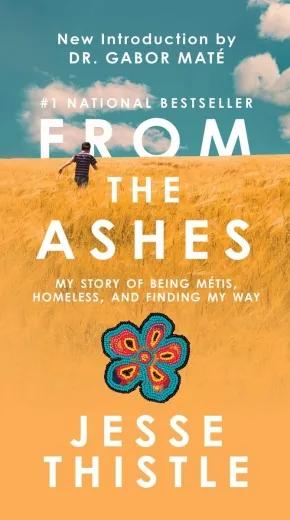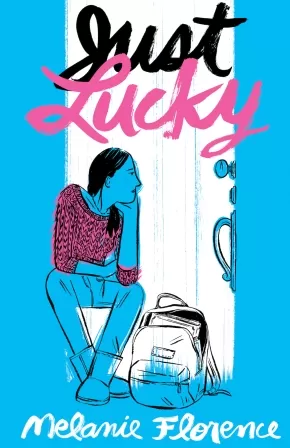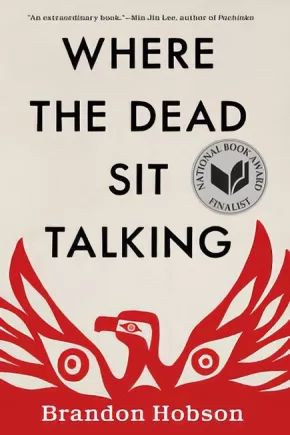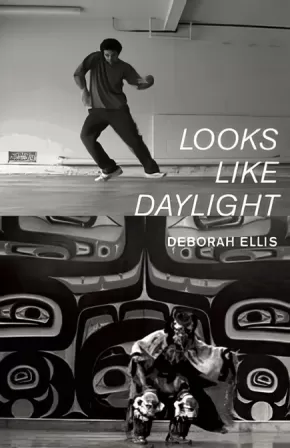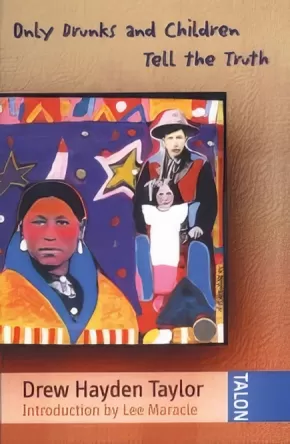Foster Care
Synopsis:
In this extraordinary and inspiring debut memoir, Jesse Thistle, once a high school dropout and now a rising Indigenous scholar, chronicles his life on the streets and how he overcame trauma and addiction to discover the truth about who he is.
If I can just make it to the next minute... then I might have a chance to live; I might have a chance to be something more than just a struggling crackhead.
From the Ashes is a remarkable memoir about hope and resilience, and a revelatory look into the life of a Métis-Cree man who refused to give up.
Abandoned by his parents as a toddler, Jesse Thistle briefly found himself in the foster-care system with his two brothers, cut off from all they had known. Eventually the children landed in the home of their paternal grandparents, but their tough-love attitudes meant conflicts became commonplace. And the ghost of Jesse’s drug-addicted father haunted the halls of the house and the memories of every family member. Struggling, Jesse succumbed to a self-destructive cycle of drug and alcohol addiction and petty crime, spending more than a decade on and off the streets, often homeless. One day, he finally realized he would die unless he turned his life around.
In this heartwarming and heartbreaking memoir, Jesse Thistle writes honestly and fearlessly about his painful experiences with abuse, uncovering the truth about his parents, and how he found his way back into the circle of his Indigenous culture and family through education.
An eloquent exploration of what it means to live in a world surrounded by prejudice and racism and to be cast adrift, From the Ashes is, in the end, about how love and support can help one find happiness despite the odds.
Awards
- 2020 Indigenous Voices Awards Winner for Published Prose in English
- Winner, Kobo Emerging Writer Prize Nonfiction
- Winner, High Plains Book Awards
- An Indigo Book of the Year
Reviews
“From the Ashes hits you like a punch in the gut. It’s an unflinching, heartrending and beautifully written story of survival against seemingly impossible odds. But it’s also a book that should make you furious. Thistle paints a vivid portrait of a country seemingly incapable of doing right by Indigenous youth or by those struggling with homelessness, addiction and intergenerational trauma. That he survived to tell this story is truly a miracle. Still, one question haunts me after finishing this powerful and devastating book: How do we ensure that the next generation isn’t forced to navigate a broken system that takes their lives for granted and fails them at every turn? My greatest hope, then, is that From the Ashes will be the wakeup call Canada needs.” — IAN MOSBY, historian and author of Food Will Win the War
Educator Information
Caution: Deals with mature subject matter.
Additional Information
368 pages | 6.00" x 9.00"
Synopsis:
We live in a hopeless old house on an almost-deserted dead-end street in a middle-of-nowhere town named Hope. This is the oldest part of Hope; eventually it will all be torn down and rebuilt into perfect homes for perfect people. Until then, we live here: imperfect people on an imperfect street that everyone forgets about.
For Eva Brown, life feels lonely and small. Her mother, Shirley, drinks and yells all the time. She’s the target of the popular mean girl, and her only friend doesn’t want to talk to her anymore. All of it would be unbearable if it weren’t for her cat, Toofie, her beloved nohkum, and her writing, which no one will ever see.
When Nohkum is hospitalized, Shirley struggles to keep things together for Eva and her younger brother, Marcus. After Marcus is found wandering the neighbourhood alone, he is sent to live with a foster family, and Eva finds herself in a group home.
Furious at her mother, Eva struggles to adjust—and being reunited with her family seems less and less likely. During a visit to the hospital, Nohkum gives Eva Shirley’s diary. Will the truths it holds help Eva understand her mother?
Heartbreaking and humorous, Hopeless in Hope is a compelling story of family and forgiveness.
Reviews
"It’s wonderful to read an author who so artfully channels the voice of youth. As Eva navigates serious challenges like living in a group home and being separated from her family, she observes the world around her, learning lessons about love, the ties of family and friendship, the unfairness of poverty, and the power of finding your voice. Oh, and also soup—the tremendous healing power of a bowl of homemade soup." — Jennifer Moss, UBC Creative Writing Instructor and New Media Storyteller
"An intense, compact and ultimately hopeful narrative that looks deeply into the complexity of foster care and the legacy of colonization."— Chris Gustafson, High School Librarian
Educator Information
Recommended for ages 12+
Additional Information
216 pages | 5.50" x 8.25" | Paperback
Synopsis:
A fierce voice longs to break free. A spark ignites inside fourteen-year-old Iz Beaufort when she hears school music group Manifesto perform. Even though she hasn’t written a song since That Place, she recognizes herself in the moving performance and longs to be part of the group, certain that they might actually understand her. But Manifesto is based at the prestigious Métier School, and Iz has bounced through twenty-six foster homes. Plus, there’s no way Dominion Children’s Care would ever send a foster kid to a private school when a public option is available. So Iz does what any passionate, broken, off-the-chart wunderkind might and takes matters into her own hands. Iz fakes her way in only to face a new set of challenges: tuition fees, tough classwork, and new classmates she can’t immediately identify as friends or foes. And if she can’t handle all this while keeping how she got into Métier a secret, she could get kicked out of both school and her current home. But a life with music—a life where Iz gets to have a voice—might be worth risking everything.
Reviews
"A compassionate, character-driven story that will particularly resonate with music lovers." - Kirkus
Educator Information
Recommended for ages 12 to 18.
Additional Information
230 pages | 9.00" x 6.00" | Paperback
Synopsis:
There’s nothing lucky about your family falling apart.
Lucky loves her grandparents, and they are all the family she really has. True, her grandma forgets things…like turning off the stove, or Lucky’s name. But her grandpa takes such good care of them that Lucky doesn’t realize how bad things are. That is until he’s gone. When her grandma accidentally sets the kitchen on fire, Lucky can’t hide what’s happening any longer, and she is sent into foster care. She quickly learns that some foster families are okay. Some aren’t. And some really, really aren’t.
Is it possible to find a home again when the only one you’ve ever known has been taken from you?
Reviews
“This fast-paced novel is a sensitive portrayal of the challenges of coping with dementia, and the exploration of the feelings related to having a loved one suffering this condition feel authentic. An uplifting and hopeful #ownvoices novel revealing the complexities of foster care and the heartbreak of dementia.” - Kirkus Reviews
“Just Lucky is an amazing book, and Melanie Florence draws together many contemporary issues faced by families and kids today…Highly Recommended.” - CM: Review of Canadian Materials
“This book was perfect. It was incredibly well written, I devoured it in one sitting. The characters felt so real, one minute I was crying, the next I was laughing. For me, that's when you know a book has done it's job. I loved how raw and honest it was, it deals with lots of different things. I think it's a real eye-opener about foster care.” - Karis Tomic, Book Reviewer
“There were many layers to this story. Some heartbreaking, some touching, some laugh out loud moments and to be quite honest, some very hard to read. It kept my attention so much that I devoured this in just an hour and a half.” - Jessica Mac, Book Reviewer
“What this book does best is bring the emotional roller coaster of being in the foster care system to the page with such vividness that it sucks you in. Just Lucky is heartfelt, heartbreaking, but hopeful at the same time and it's all balanced perfectly.” - Hristina Petrov, Book Reviewer
“The diverse social issues mentioned in this plot are the ultimate reasons why I enjoy the book, especially the fact that the representation of race was indeed poignant and genuine all throughout.” -Kristara Septa Araya, Book Reviewer
Educator Information
Recommended for ages 13 to 18 (Grades 8 to 12).
Keywords: Foster Care, Dementia, Grandparents, Indigenous, High School, Bullying.
Subjects: Character Education (Family and Friendship, Bullying, Prejudice and Tolerance); Reflecting Diversity (Indigenous, Foster Children)
Additional Information
248 pages | 5.50" x 8.20"
Synopsis:
Set in rural Oklahoma during the late 1980s, Where the Dead Sit Talking is a startling, authentically voiced and lyrically written Native American coming-of-age story.
With his single mother in jail, Sequoyah, a fifteen-year-old Cherokee boy, is placed in foster care with the Troutt family. Literally and figuratively scarred by his mother’s years of substance abuse, Sequoyah keeps mostly to himself, living with his emotions pressed deep below the surface. At least until he meets seventeen-year-old Rosemary, a troubled artist who also lives with the family.
Sequoyah and Rosemary bond over their shared Native American background and tumultuous paths through the foster care system, but as Sequoyah’s feelings toward Rosemary deepen, the precariousness of their lives and the scars of their pasts threaten to undo them both.
Awards
- A Kirkus Reviews Best Book of 2018
- 2019 In the Margins Book Award Top Fiction Novel
Reviews
"An extraordinary book." —NPR's Code Switch
"A strange and powerful Native American Bildungsroman . . . this novel breathes with a dark, pulsing life of its own." —The Tulsa Voice
" This is a dark story that depicts the loneliness and pain of unwanted children and the foster care system where they end up . . . authentic and humane. " — The Oklahoman
"A powerful testament to one young Native American’s will to survive his lonely existence. Sequoyah’s community and experience is one we all need to know, and Hobson delivers the young man’s story in a deeply profound narrative." —KMUW Wichita Public Radio
"I was really struck by the intelligence of the book, as well as the significance of the story that he's telling, about what it's like to be a modern Indigenous person in this country, as a Native American, and to be in the foster care system. I was very struck by the plot of it—it's very well written, it's very propulsive, it's very readable for literary fiction, and I would recommend it heartily to book clubs." —Min Jin Lee, author of Pachinko
"Dreamlike prose . . . Where the Dead Sit Talking is an exploration of whether it’s possible for a person to heal when all the world sees is a battlefield of scars. " — San Diego CityBeat
"The latest from Hobson is a smart, dark novel of adolescence, death, and rural secrets set in late-1980s Oklahoma. Hobson’s narrative control is stunning, carrying the reader through scenes and timelines with verbal grace and sparse detail. Far more than a mere coming-of-age story, this is a remarkable and moving novel ." — Publishers Weekly, Starred Review
"A masterly tale of life and death, hopes and fears, secrets and lies." —Kirkus Reviews, Starred Review
"Hobson's eloquent prose and storyline will keep literary and general fiction readers turning pages. Its teen protagonists offer interest for young adults." —Library Journal
"[A] poignant and disturbing coming-of-age story . . . Hobson presents a painfully visceral drama about the overlooked lives of those struggling on the periphery of mainstream society." —Booklist
"Where the Dead Sit Talking is a sensitive and searching exploration of a youth forged in turbulence, in the endless aftermath of displacement and loss. Sequoyah’s voice is powerfully singular—both wounded and wounding—and this novel is a thrilling confirmation of Brandon Hobson’s immense gifts on the page.” —Laura van den Berg, author of Find Me
Additional Information
5.50" x 8.25"
Synopsis:
After her critically acclaimed books of interviews with Afghan, Iraqi, Israeli and Palestinian children, Deborah Ellis turns her attention closer to home. For two years she traveled across the United States and Canada interviewing Native children. The result is a compelling collection of interviews with children aged nine to eighteen. They come from all over the continent, from Iqaluit to Texas, Haida Gwaai to North Carolina, and their stories run the gamut — some heartbreaking; many others full of pride and hope.
You’ll meet Tingo, who has spent most of his young life living in foster homes and motels, and is now thriving after becoming involved with a Native Friendship Center; Myleka and Tulane, young artists in Utah; Eagleson, who started drinking at age twelve but now continues his family tradition working as a carver in Seattle; Nena, whose Seminole ancestors remained behind in Florida during the Indian Removals, and who is heading to New Mexico as winner of her local science fair; Isabella, who defines herself more as Native than American; Destiny, with a family history of alcoholism and suicide, who is now a writer and powwow dancer.
Many of these children are living with the legacy of the residential schools; many have lived through the cycle of foster care. Many others have found something in their roots that sustains them, have found their place in the arts, the sciences, athletics. Like all kids, they want to find something that engages them; something they love.
Deborah briefly introduces each child and then steps back, letting the kids speak directly to the reader, talking about their daily lives, about the things that interest them, and about how being Native has affected who they are and how they see the world.
As one reviewer has pointed out, Deborah Ellis gives children a voice that they may not otherwise have the opportunity to express so readily in the mainstream media. The voices in this book are as frank and varied as the children themselves.
Educator Information
Recommended for ages 12 and up.
Curriculum Connections: English, Geography, Humanities and Social Studies, Indigenous Studies, Civics and Careers, History
Synopsis:
Only Drunks and Children Tell the Truth is the emotional story of a woman’s struggle to acknowledge her birth family. Grace, a Native girl adopted by a White family, is asked by her birth sister to return to the Reserve for their mother’s funeral. Afraid of opening old wounds, Grace must find a place where the culture of her past can feed the truth of her present. Cast of 2 women and 2 men.
Reviews
“…this play is a very tender, engaging look at two strangers learning to be sisters…witty one-liners and snappy dialogue has crafted likeable, real characters…brings a satisfying sense of closure to the struggles of Barb and Janice/Grace. It is a welcome ending, one that reflects hope for the future – not only for these two sisters , but also for all the others who have yet to find their way home.” - Cheryl Isaacs, Aboriginal Voices.
Awards
- James Buller Award for Playwright of the Year, 1997
- Dora Mavor Moore Award for Outstanding New Play, Small Theatre Division, 1996.
Educator Information
Grades 11-12 BC English First Peoples resource for the units Yes, there is Funny Stuff - Humour in First Peoples Literature and What Creates Family?
Additional Information
112 pages | 6.00" x 9.00"
Synopsis:
Memories. Some memories are elusive, fleeting, like a butterfly that touches down and is free until it is caught. Others are haunting. You'd rather forget them, but they won't be forgotten. And some are always there. No matter where you are, they are there, too.
In this moving story of legacy and reclamation, two young sisters are taken from their home and family. Powerless in a broken system, April and Cheryl are separated and placed in different foster homes. Despite the distance, they remain close, even as their decisions threaten to divide them emotionally, culturally, and geographically. As one sister embraces her Métis identity, the other tries to leave it behind.
Will the sisters’ bond survive as they struggle to make their way in a society that is often indifferent, hostile, and violent?
Based on the adult novel In Search of April Raintree, this edition has been revised specifically for students in grades 9 through 12.
Educator Information
Recommended Grades: 9-12. This version of the novel was written specifically for students in grades 9-12 and does not contain the graphic scene that is contained in the original version, In Search of April Raintree.
Grades 10-12 English First Peoples resource.
Find a teacher guide for In Search of April Raintree and April Raintree here: Teacher Guide for In Search of April Raintree and April Raintree: A Trauma-Informed Approach to Teaching Stories of Indigenous Survivance, Family Separation, and the Child Welfare System
Additional Information
256 pages | 5.50" x 8.50" | Paperback
Synopsis:
A mystical novel reflecting a positive view of native life and philosophy, it's about a three-year-old who was taken from his home on an Ojibway reserve and placed in a series of foster homes. Join him as he travels back to the reserve and discovers his sense of place and of self.
When Garnet Raven was three years old, he was taken from his home on an Ojibway Indian reserve and placed in a series of foster homes. Having reached his mid-teens, he escapes at the first available opportunity, only to find himself cast adrift on the streets of the big city.
Having skirted the urban underbelly once too often by age 20, he finds himself thrown in jail. While there, he gets a surprise letter from his long-forgotten native family.
The sudden communication from his past spurs him to return to the reserve following his release from jail. Deciding to stay awhile, his life is changed completely as he comes to discover his sense of place, and of self. While on the reserve, Garnet is initiated into the ways of the Ojibway -- both ancient and modern -- by Keeper, a friend of his grandfather, and last fount of history about his people's ways.
By turns funny, poignant and mystical, Keeper 'n Me reflects a positive view of Native life and philosophy -- as well as casting fresh light on the redemptive power of one's community and traditions.
Educator Information
Grades 10-11 BC English First Peoples resource for the unit How Do We Define Ourselves?
Additional Information
320 pages | 5.19" x 7.98" | This edition published in 2018

